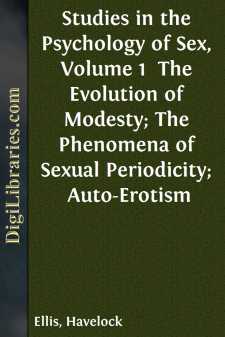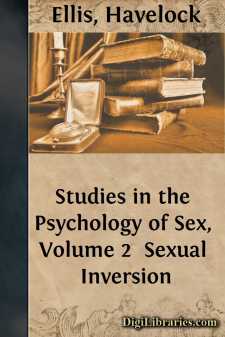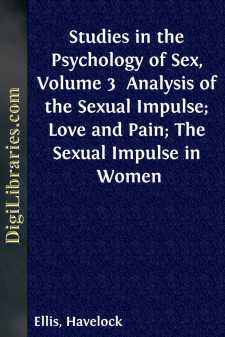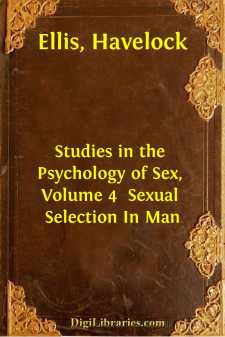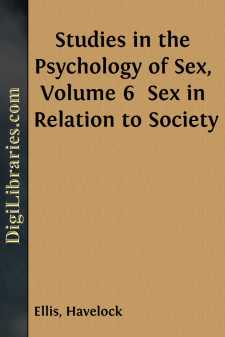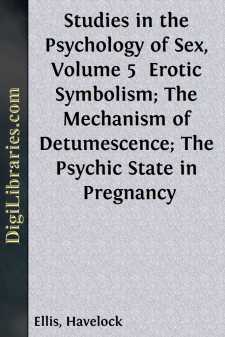Categories
- Antiques & Collectibles 13
- Architecture 36
- Art 48
- Bibles 22
- Biography & Autobiography 815
- Body, Mind & Spirit 144
- Business & Economics 28
- Children's Books 18
- Children's Fiction 14
- Computers 4
- Cooking 94
- Crafts & Hobbies 4
- Drama 346
- Education 58
- Family & Relationships 59
- Fiction 11835
- Games 19
- Gardening 17
- Health & Fitness 34
- History 1378
- House & Home 1
- Humor 147
- Juvenile Fiction 1873
- Juvenile Nonfiction 202
- Language Arts & Disciplines 89
- Law 16
- Literary Collections 686
- Literary Criticism 179
- Mathematics 13
- Medical 41
- Music 40
- Nature 180
- Non-Classifiable 1768
- Performing Arts 7
- Periodicals 1453
- Philosophy 65
- Photography 2
- Poetry 896
- Political Science 203
- Psychology 44
- Reference 154
- Religion 515
- Science 126
- Self-Help 85
- Social Science 83
- Sports & Recreation 34
- Study Aids 3
- Technology & Engineering 60
- Transportation 23
- Travel 463
- True Crime 29
Havelock Ellis
Havelock Ellis (1859-1939) was a pioneering English physician, writer, and social reformer known for his extensive work in the field of human sexuality. His most influential work, "Studies in the Psychology of Sex," helped to destigmatize various sexual behaviors and is considered foundational in the development of sexology. Additionally, Ellis was an advocate for eugenics, social reform, and women's rights, although some of his views, particularly on eugenics, are controversial by modern standards.
Author's Books:
Sort by:
by:
Havelock Ellis
I. The Definition of Modesty—The Significance of Modesty—Difficulties in the Way of Its Analysis—The Varying Phenomena of Modesty Among Different Peoples and in Different Ages. Modesty, which may be provisionally defined as an almost instinctive fear prompting to concealment and usually centering around the sexual processes, while common to both sexes is more peculiarly feminine, so that it may...
more...
by:
Havelock Ellis
SEXUAL INVERSION. CHAPTER I.—INTRODUCTION. Homosexuality Among Animals—Among the Lower Human Races—The Albanians—The Greeks—The Eskimos—The Tribes of the Northwest United States—Homosexuality Among Soldiers in Europe—Indifference Frequently Manifested by European Lower Classes—Sexual Inversion at Rome—Homosexuality in Prisons—Among Men of Exceptional Intellect and Moral...
more...
by:
Havelock Ellis
PREFACE The study of social hygiene means the study of those things which concern the welfare of human beings living in societies. There can, therefore, be no study more widely important or more generally interesting. I fear, however, that by many persons social hygiene is vaguely regarded either as a mere extension of sanitary science, or else as an effort to set up an intolerable bureaucracy to...
more...
by:
Havelock Ellis
ANALYSIS OF THE SEXUAL IMPULSE. Definition of Instinct—The Sexual Impulse a Factor of the Sexual Instinct—Theory of the Sexual Impulse as an Impulse of Evacuation—The Evidence in Support of this Theory Inadequate—The Sexual Impulse to Some Extent Independent of the Sexual Glands—The Sexual Impulse in Castrated Animals and Men—The Sexual Impulse in Castrated Women, after the Menopause, and...
more...
by:
Havelock Ellis
INTRODUCTION From the point of view of literature, the Great War of to-day has brought us into a new and closer sympathy with the England of the past. Dr. Woods and Mr. Baltzly in their recent careful study of European Warfare, Is War Diminishing? come to the conclusion that England during the period of her great activity in the world has been "fighting about half the time." We had begun to...
more...
by:
Havelock Ellis
IMPRESSIONS AND COMMENTS July 24, 1912.—I looked out from my room about ten o'clock at night. Almost below the open window a young woman was clinging to the flat wall for support, with occasional floundering movements towards the attainment of a firmer balance. In the dim light she seemed decently dressed in black; her handkerchief was in her hand; she had evidently been sick. Every few moments...
more...
by:
Havelock Ellis
SEXUAL SELECTION IN MAN. The External Sensory Stimuli Affecting Selection in Man—The Four Senses Involved. Tumescence—the process by which the organism is brought into the physical and psychic state necessary to insure conjugation and detumescence—to some extent comes about through the spontaneous action of internal forces. To that extent it is analogous to the physical and psychic changes which...
more...
by:
Havelock Ellis
CHAPTER I. THE MOTHER AND HER CHILD. The Child's Right to Choose Its Ancestry—How This is Effected—The Mother the Child's Supreme Parent—Motherhood and the Woman Movement—The Immense Importance of Motherhood—Infant Mortality and Its Causes—The Chief Cause in the Mother—The Need of Rest During Pregnancy—Frequency of Premature Birth—The Function of the State—Recent Advance...
more...
by:
Havelock Ellis
EROTIC SYMBOLISM. I. The Definition of Erotic Symbolism—Symbolism of Act and Symbolism of Object—Erotic Fetichism—Wide extension of the symbols of Sex—The Immense Variety of Possible Erotic Fetiches—The Normal Foundations of Erotic Symbolism—Classification of the Phenomena—The Tendency to Idealize the Defects of a Beloved Person—Stendhal's "Crystallization." By "erotic...
more...
by:
Havelock Ellis
CHAPTER I The twentieth century, as we know, has frequently been called "the century of the child." When, however, we turn to the books of Ellen Key, who has most largely and sympathetically taken this point of view, one asks oneself whether, after all, the child's century has brought much to the child. Ellen Key points out, with truth, that, even in our century, parents may for the most...
more...


